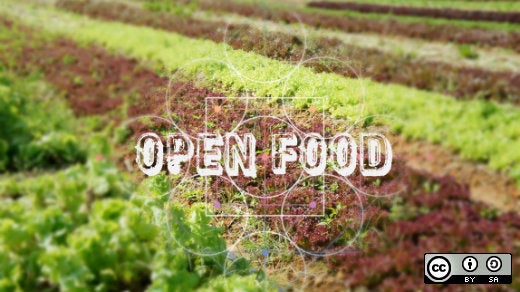Roy Guisinger is the developer of Open Food Source: open source software for running your own local food co-op. It is an end-to-end solution with support for online ordering, product management, delivery coordination, and even newsletters. Today, Roy talks about the origins of the project, its plans for the future, and the spirit of open source in farming.
Open Food Source: From orphan to federation
In the local food movement, open source principles are very much like the open pollinated seeds that farmers keep to grow next year’s crops. When farmers use their own seeds, they are in control of breeding and conserving for the future. In contrast, closed source and software as a service (SaaS) providers are more like the companies with patented seeds who exert control over farmers by requiring them to purchase new seeds each year, sometimes even controlling the sale of the harvested crops.
Open Food Source (OFS) might be the longest running open source food hub software available today.
Its story began in the winter of 2005, when I was attending a conference of the Nebraska Sustainable Agriculture Society. The president of the Oklahoma Food Cooperative presented a session about the Local Food Co-op (LFC) software that was being developed to manage online sales between their farmer and consumer members. As a project released under the GNU General Public License, the software was soon adopted by several forming cooperatives around the central United States, and later by many others.
Within a few years, as CIO of the Nebraska Food Cooperative, I found myself acting as the lead developer of the LFC software and supporting similar organizations in several other states. Since I first installed Slackware Linux in 1995, I have been an avid supporter of open source software, but I had never contributed to an open source project, let alone led one.
Much of my work on the software has been in a volunteer capacity, but over the years one cooperative or another was sometimes able to secure grant funding to help pay for LFC software developments. I would then post improved versions for download and upgrade the websites I was directly maintaining. As an open source and freely-available package, every hour spent improving the software generated significantly higher returns as it was leveraged into multiple organizations around the country, and eventually around the world. As with many jobs, however, there is a trade-off between just getting the job done and handling the organizational needs. While my time was occupied with adding new software features, which grants could fund, those same grants would not support the creation of a development community.
Since its initial release, the LFC software has been downloaded and deployed in many places, something like the spread of open pollinated seeds by the Open Source Seed Initiative. Even now, I occasionally discover websites where an old version of the LFC software is still rooted, and most of those organizations probably don't know there are improved versions available to them. Somewhere along the way, the Oklahoma Food Cooperative decided to rewrite their own system and abandoned the LFC software entirely. As a result, I found myself developing an orphaned project with no way to post updates to the LFC website. Consequently, it seemed like a good time to create a new website and rebrand the software under a different name: Open Food Source (OFS).
With the new OFS brand and website, I wanted to be careful about releasing the codebase until there was a support structure behind it. Much like the local food community itself, there are enormous advantages in sharing resources and building relationships between providers and users. Without that, there can be no long-term viability. In addition to delivering a solid product for food hubs to use in transacting their sales and distributions, my objective has been to create a sustainable network around the software. Ultimately, the OFS software and the now-forming OFS Federation is an effort to provide a sustainable software system to the local food community that is consistent with the open values and cooperative spirit of that community.
In the eight years of my involvement, the local food movement has grown significantly. Many solutions besides OFS are now available, most of them being closed source or SaaS options. Ultimately, the users of closed sourced and SaaS software are dependent upon those providers for the continued success of their businesses just as much as farmers who use closed pollinated seeds are dependent upon the seed companies for their continuing livelihood.
Where most of the organizations using the OFS software are cooperatives, the sixth cooperative principle states that there should be "cooperation among cooperatives." To this end, the OFS Federation is a framework for users and providers of the OFS software to manage their needs and the resources to resolve those needs. Rather than a hundred different organizations forking an open source project in a hundred unique directions, the Federation will provide for version control, training, and the stable development of the software, making this open source technology competitive and viable in the marketplace without the heavy hand of closed source or SaaS control. In a spirit remarkably like traditional farming communities, the OFS Federation is committed to the open exchange of ideas and sharing of resources while respecting the rights of individual members to manage their own affairs.
A stable and enhanced version of the OFS software will soon be available for free download at the www.openfoodsource.org website. Meanwhile, the OFS Federation, piloted by existing users of the software, will be taking shape to allow for continued development and provide for additional value-added services and resources to participating food hubs. The Federation might even offer collaborative opportunities to users of non-OFS solutions as well.





Comments are closed.